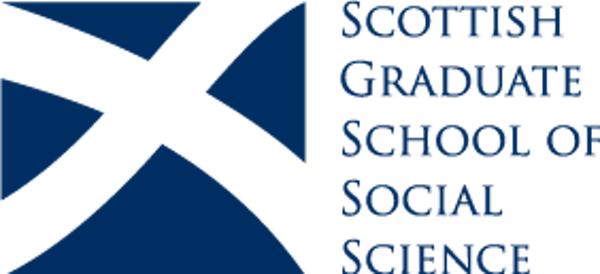
Scottish Programme of Advanced Training for Social Anthropology PhD Students, STAR 1 (2015)
Location
The Burn
Glenesk Brechin DD9 7YP United KingdomDescription
The Scottish Graduate School of Social Science welcomes postgraduate research students to the following advanced training event:
Scottish Programme of Advanced Training for
Social Anthropology PhD Students, STAR 1
27 April - 1 May 2015
The Burn, Glenesk
This workshop is specifically designed for postgraduate students in Social Anthropology departments in Scotland, who are finishing their pre-field work training. Last year, this included sessions on:
- Writing fieldnotes
- Working with Archives
- Sound and fieldwork
Course outline and programme
The course takes place at The Burn and is residential from midday on Monday 27 April until midday on Friday 1 May 2015.
Monday, 27 April programme
12:00-2:00 Arrival and lunch
2:00-3:00 Introductions and practical arrangements
3:30-5:00 Writing Fieldnotes (Casey High and Robert Wishart)
5:00-6:00 Free
1. Writing fieldnotes
We start the week’s formal events with a short session on fieldnotes. Fieldnotes occupy a curious place in the anthropological imagination - everyone writes them, few show them to anyone else, and there is an odd reluctance to talk about them. We will use an opening discussion on fieldnotes in general to set up some criteria for things we would like fieldnotes to do (e.g. Tim Ingold’s recently announced ambition to re-embed “description - not just literary but graphic and performative - in “observation”). We will then launch pairs of students on the task of writing notes through the week, with a modest prize for the most imaginative and effective notes to be awarded at the end of the week.
Jean Jackson (1990) “‘I am a Fieldnote’: Fieldnotes as a Symbol of Professional Identity.” In Fieldnotes: The Makings of Anthropology, Roger Sanjek, ed., Ithaca: Cornell University Press: 3-33
Tuesday, 28 April programme
10:00-11:00 Initial group formations and developing the student led agenda (led by Naomi Haynes)
11-11:30 Break
11:30-1:00 Student group work (with assistance as necessary from available staff)
1:00-2:30 Lunch
2:30-4:30 Audio-visual methods and data management (led by Alex King)
4:00-6:00 After dinner / early evening Free Talk by Dr Rupert Stasch (Cambridge)
1. Initial Group Formations
Issues to be explored by the students will be brainstormed, and clustered into four or five areas. Groups of students (both pre- and post- fieldwork) will form around each main cluster.
2. Audio-visual Methods and Data Management
Sound recordings have long since been an important component of ethnographic fieldwork, especially in the context of formal interviews. This session will explore the technologies and techniques anthropologists today to record and manage data, recognising the increasing importance of video documentation. It will allow students to familiarise themselves with and experiment with the kinds of audio-visual equipment and methods they might use in their own fieldwork. It will give particular attention to the importance of meta-data in managing the data generated through these methods to make it valuable in their subsequent dissertation writing.
3. Student Group Work
Each group will break away and start to think how they want to address each of the areas they have identified as priorities to be addressed.
Wednesday, 29 April programme
9:30-11:00 Sound and fieldwork (led by Stephanie Bunn)
11:00-11:30 Break
11:30-1:00 Student Group work
12:30-2:00 Lunch
2:00-6:00 Afternoon Free Before Dinner / After Dinner Talk by Professor Tim Ingold
1. Sound and Fieldwork
Fieldwork is a multisensory experience, and this interactive session explores the senses in anthropological work, focusing in particularly on sound.
2. Student Group Work
Further development of the areas to be addressed by students, and final preparation for their presentations / sessions for the next day
Thursday, 30 April programme
9:30-11:00 Feedback group 1
11:00 – 11:30 Break
11:30 – 13:00 Feedback group 2
12:30 – 14:00 Lunch
14:00 – 17:00 Feedback remainder groups
1. Feedback
All groups facilitate their sessions as they wish. Staff act as resource as and if students see fit.
Friday, 1 May programme
9:30-10:30 Fieldnotes project wrap-up
10:30-11:00 Break
11:00-12:00 Evaluation and plans for follow-up
12:00-2:00 Packing up, departure
Contact
Please direct any questions reagrding STAR 1 to Mhairi Aitkenhead at socanth@st-andrews.ac.uk.
Organised by
The Scottish Graduate School of Social Science is the UK's largest facilitator of funding, training and support for doctoral students in social science. By combining the expertise of sixteen universities across Scotland, the school facilitates world-class PhD research. The school is funded jointly by the Economic and Social Research Council and the Scottish Funding Council.
SGSSS is a highly attractive environment for doctoral research. Not only do our partner universities offer an excellent research environment, we also offer comprehensive and world-class research training in a number of discipline-specific and interdisciplinary pathways. In addition, the school manages a programme of advanced training courses and an annual summer school which together offers our students further opportunities to develop their research, knowledge exchange and transferable professional skills.
At the heart of the SGSSS is the Doctoral Training Partnership (formerly the Doctoral Training Centre) in Scotland. The SGSSS was established in 2011 and is the biggest of 14 Economic & Social Research Council (ESRC) accredited DTPs in the United Kingdom. The bid for renewed funding has been successful and from 1 October 2017 the SGSSS will be one of the ESRC's 14 Doctoral Training Partnerships (DTP).